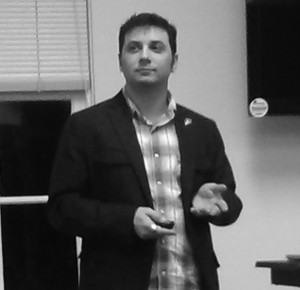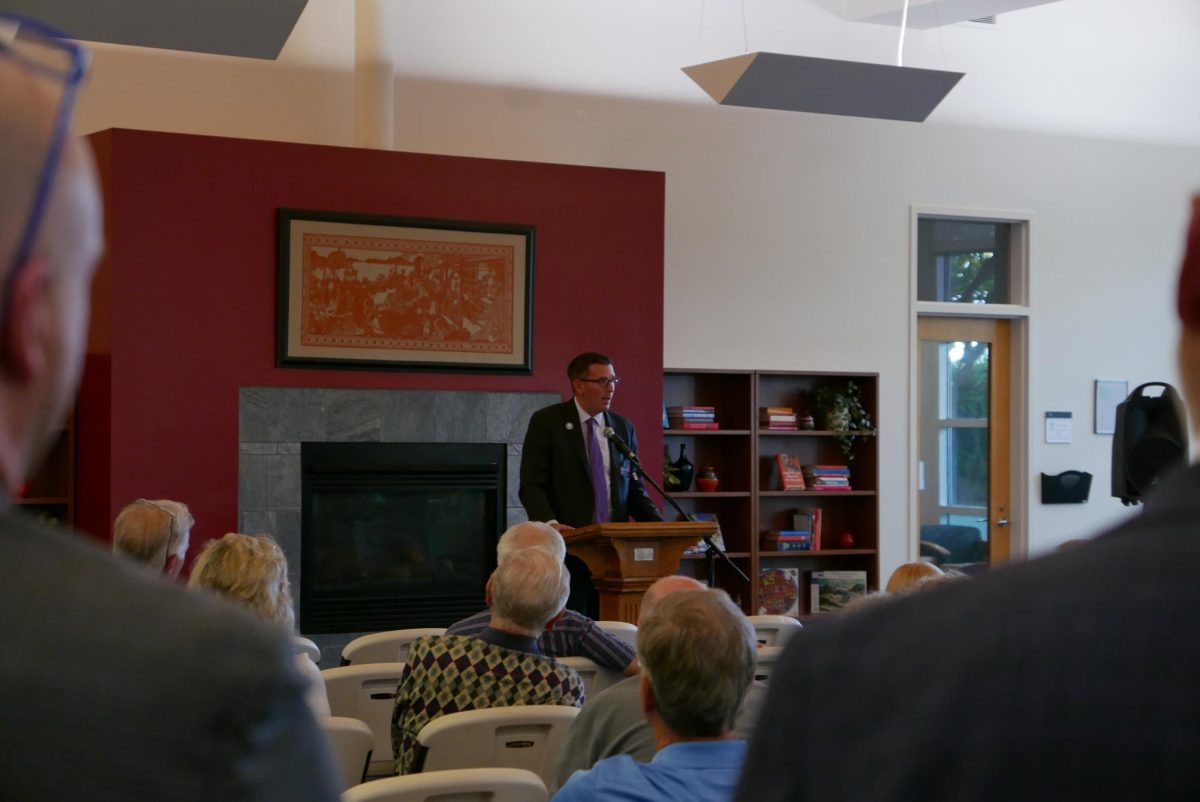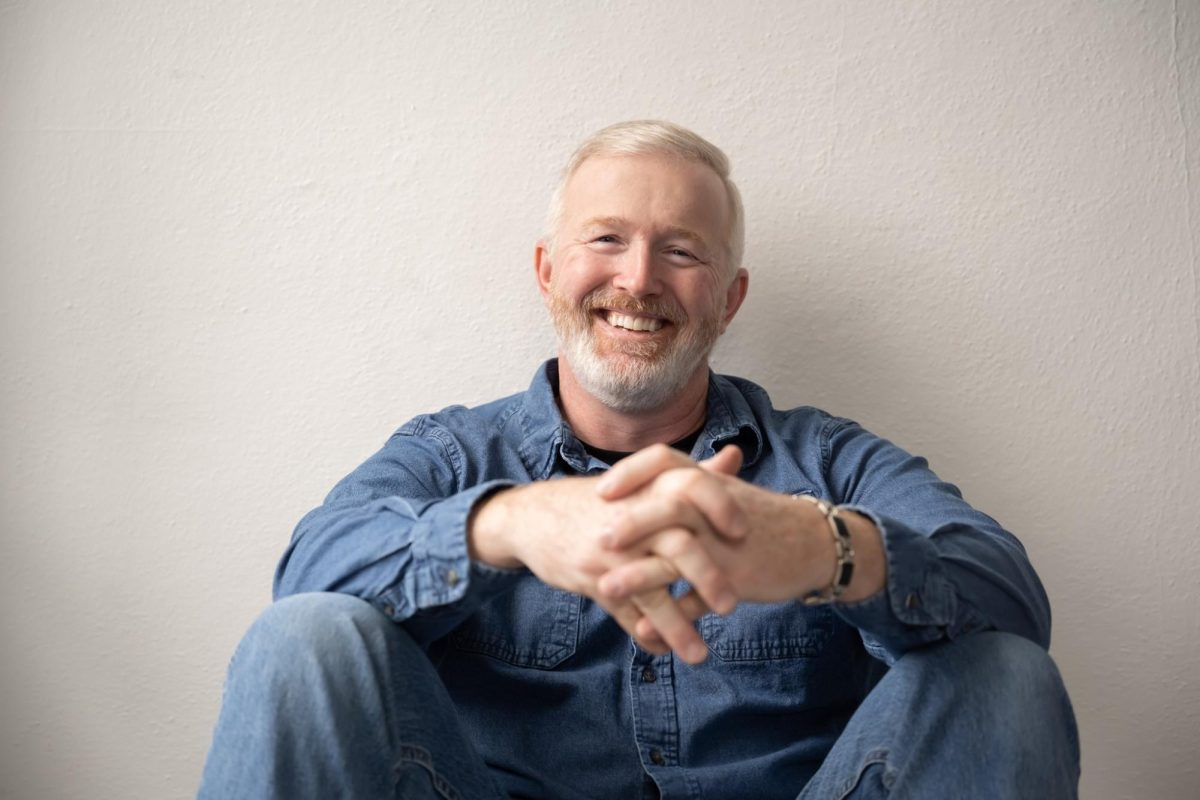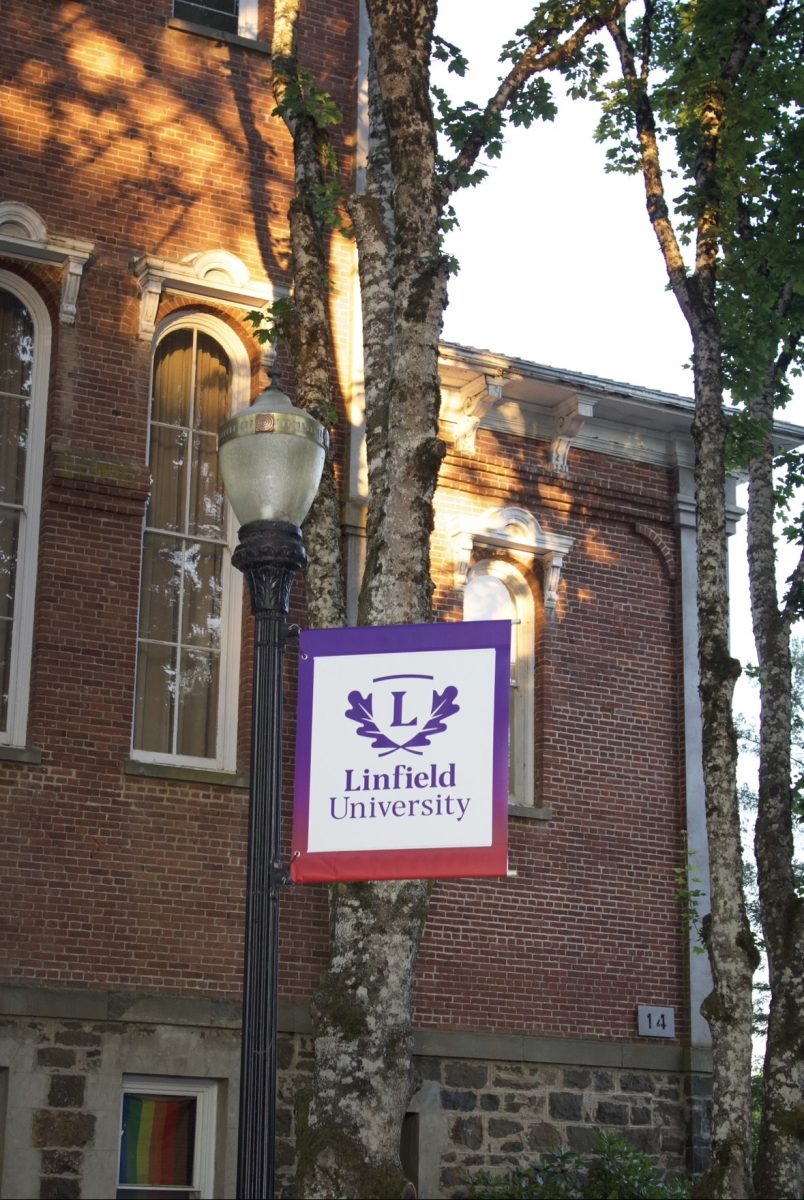
Sara Miller/For the Review
John Paul Sartre once said, “We are our choices.” Social scientist Dr. Pete Hatemi proved just how true that is on Feb. 26 in Riley 201.
Hatemi has worked in countries, such as Australia, Hungary, Sweden and Denmark, along with the United States, to prove what kinds of socialization impact the way our lives turn out.
“How do our families’ different views on religion and politics affect how we see things and the decisions we make?” Hatemi asked the audience.
Hatemi and his team have worked with people of both genders to prove how the way these people were raised played an impact on the decisions they made in politics, how they viewed images and their relationships.
“The biggest differences we found were in that of the left wing versus the right wing and liberals versus conservatives,” Hatemi said.
And that’s what one of his biggest research projects, which was printed in the Journal of Theoretical Politics, was based around. Hatemi and his team brought in men and women of both the conservative and liberal parties, varying in lifestyles and ages.
They used gauze pads to soak up a person’s smell in order to rate the attractiveness of the opposite and same political party, without the participants knowing who each smell belonged to. The end result: conservatives found other conservatives’ smells most attractive and were neutral of liberals’ smells. Liberals were neutral of other liberals but found the smells of the conservative participants most offensive.
One anecdote that Hatemi remembers in particular was when, at the end of the study, a female liberal asked to take the vial of the smell home, the smell of someone with the same ideology, because it was the best scent she’d ever smelled. Immediately following her, a conservative female told him that she thought the scent had gone rancid and she wanted to vomit after smelling it.
Hatemi has done other research to prove this point, and it resonated with those in attendance.
Junior Brea Riberio said she thinks the kind of work he is doing is great because it helps make more sense of our society and what causes our differences and how people can move past them.
“But if I did learn one thing in particular,” Riberio concluded, “It’s that I’m going to marry someone with similar liberal views as myself and he’s going to smell really good to me.”
Sara Miller/For the Review
Sara Miller can be reached at
[email protected]






